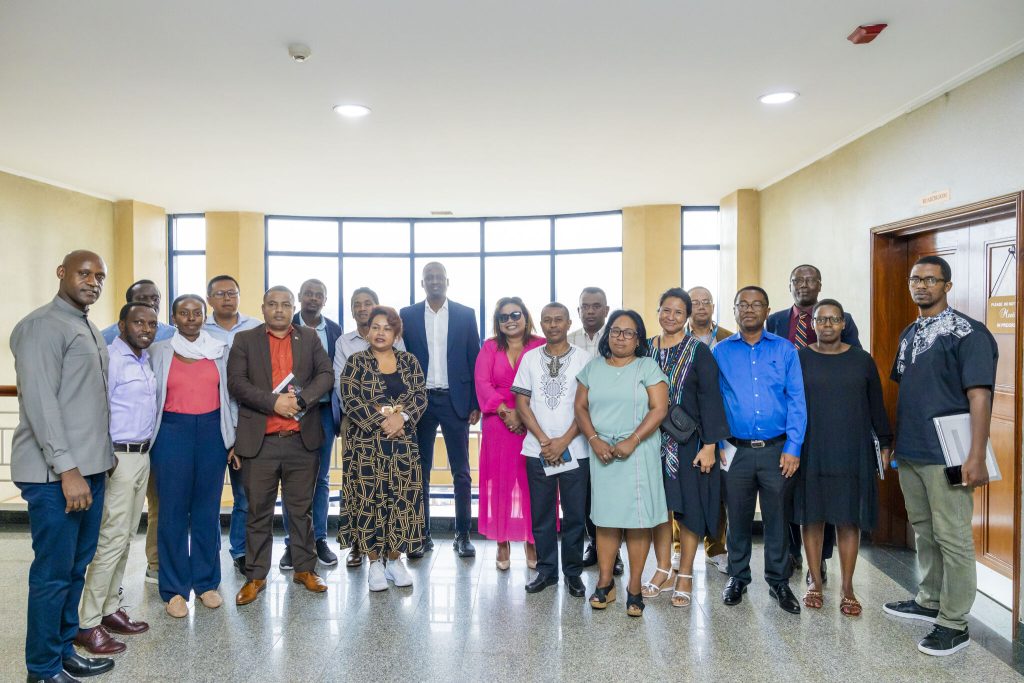Overview
Congo Brazzaville (Republic of the Congo) sought to strengthen maternal health reporting and routine surveillance in late 2020, engaging HISP Rwanda for DHIS2 customization under forested, low-connectivity environments. Our project introduced an innovative combination of offline data entry, localized dashboards, and training-of-trainers to transform how provincial stakeholders tracked antenatal visits, skilled birth attendance, and postpartum care. This post highlights the technical design, training efforts, and significant maternal health improvements achieved.
Objectives
- Customize DHIS2 for Maternal Health: Implement a maternal health dashboard that tracks ANC visits, facility-based deliveries, and postpartum follow-up.
- Enable Offline Data Entry: Provide DHIS2 offline capabilities via mobile tablets for remote health posts in Likouala and Sangha Plateaux.
- Train Local Trainers: Develop a Training-of-Trainers (ToT) program to empower Congolese data managers.
- Improve Data Quality & Use: Embed validation rules and host data-use workshops to ensure data-driven decision-making at provincial and national levels.
Context & Challenges
- Geographical Barriers: Dense rainforests and dispersed riverine communities had minimal or no internet connectivity. Reliable power was sporadic.
- Language Needs: National health staff spoke French and some Lingala; localized forms and tutorials were required in both languages.
- Human Resource Constraints: Limited number of trained M&E personnel at the provincial level; high staff turnover necessitated a repeatable training model.
Implementation Strategy
1. System Customization & Localization
- Data Element Configuration: Aligned DHIS2 data elements with the Republic’s maternal health indicators—ANC1, ANC4, skilled birth attendance, and postpartum visit completion. Collaborated with the Ministry’s Reproductive Health Directorate to standardize definitions.
- Validation Rules: Embedded rules to ensure proper chronological order of ANC visits, verify facility codes, and flag missing key fields (e.g., gestational age, maternal age).
- Language Translation: Translated DHIS2 forms, field labels, and help text into French and Lingala to accommodate local usage.
2. Offline Data Entry & Hardware Deployment
- Tablet Configuration: Deployed 60 rugged tablets with DHIS2 Capture preinstalled, loaded with offline data entry forms specific to maternal health. Equipped tablets with micro-SD backup modules for encrypted data transfers.
- Solar Charging Stations: Installed solar panels in Likouala and Sangha Plateaux health posts to provide at least 6 hours of daily charging capability. This ensured uninterrupted offline data collection for community outreach workers.
- Sync Protocols: Designed weekly synchronization schedules. Community health agents traveled to district hubs in Sibiti and Impfondo to connect to temporary VSAT stations for data upload.
3. Training-of-Trainers (ToT) Program
- Master Trainer Selection: Identified 10 senior data managers from Brazzaville who underwent a two-week intensive DHIS2 training in January 2021, focusing on system administration, form design, and dashboard creation.
- Provincial Cascades: These master trainers conducted provincial workshops across 12 provinces between February and August 2021. Each workshop lasted five days and covered:
- Basic DHIS2 navigation and data entry
- Offline/online synchronization processes
- Dashboard interpretation and data-use principles
- Uploading and securing encrypted data via SD transfer
- Training Materials: Developed bilingual ToT manuals, video tutorials accessible offline, and pictogram-based quick-reference guides for facility staff.
4. Maternal Health Dashboard & Data Use Workshops
- Dashboard Development: Built a custom Maternal Health Dashboard with interactive charts showing:
- ANC1/ANC4 coverage by district
- Skilled birth attendance percentages
- Postpartum visit completion rates
- Distinction between urban (Brazzaville, Pointe-Noire) and rural (Likouala, Sangha Plateaux) trends
- Data-to-Action Workshops: From September to December 2021, conducted district-level workshops where provincial teams used dashboard insights to:
- Identify districts with low ANC4 coverage (e.g., Sangha Plateaux reported only 45% ANC4)
- Develop targeted outreach (e.g., community radio spots encouraging early ANC)
- Optimize allocation of midwives and mobile clinics based on hotspot analysis
Impact
- Reporting Rates: Maternal health data reporting improved from 54% pre-intervention to 81% within eight months across rural provinces.
- ANC Coverage Increase: Districts with low initial ANC4 (e.g., Sangha Plateaux at 45%) saw an increase to 62% by mid-2022, as targeted outreach expanded.
- Facility-Based Deliveries: Skilled birth attendance in rural provinces rose from 58% to 74% after six months of dashboard-driven outreach and resource shifts.
- Data Use Culture: Provincial health managers began monthly coordination meetings to monitor dashboard metrics, fostering a culture of accountability and continuous improvement.
Partners
- Ministry of Health, Republic of the Congo: Led indicator selection, provided regional coordination, and endorsed solar kit installations.
- UNICEF Republic of the Congo: Funded tablet procurement, solar panel installations, and facilitated local translation services.
- MSF: Assisted with security escorts and logistics for tablet distribution to remote communities.
- Institut Pasteur de Brazzaville: Partnered in data validation protocols, especially for maternal mortality surveillance.
Challenges and Mitigation
- Power Instability: Solar stations sometimes underperformed during rainy seasons. Mitigated by providing rechargeable power banks for critical days.
- Staff Turnover: Frequent transfers of trained personnel necessitated ongoing ToT refresher sessions and remote mentorship.
- Data Transmission Delays: Weekly synchronization windows occasionally missed due to weather or security. To address this, backup mic
